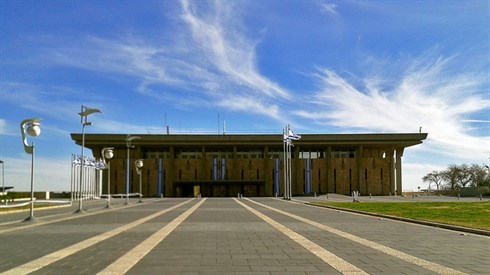66
Question
In the extreme hypothetical case that a miracle were to happen and the Arabs would promise (and we somehow knew that they would uphold this promise, again this is hypothetical) to lay down their arms for eternity in exchange for the creation of a Palestinian State in Eretz Yisrael, are we allowed to sign such an agreement?
I understand that this is not going to happen anytime soon. But playing the Devil’s Advocate, shouldn’t we be allowed to give up land on the basis of pikuach nefesh if we knew for sure that it would save Jewish lives? Doesn’t pikuach nefesh cancel out the Halachot of Shabbat, why not those of Eretz Yisrael?
Thanks again.
Answer
There is a commandment even to go to war to conquer the Land of Israel (Rambam Hilchot Melachim 5,1; Ramban Sfer HaMitzvot, additions to Mitzvot Asei 4). The Torah repeatedly instructs the Jewish People in the desert to ready themselves for the battle against the Canaanite nations to liberate the Land that was promised to our forefathers. A Mitzva that involves going to war intrinsically overrides “pikuach nefesh” (Minchat Chinuch 425,3; 604,4). The logic behind the need for self-sacrifice is self-evident: All nations must be willing to fight to defend their homeland or they cease to exist. This is because the life of the nation takes precedence over that of the individual and a nation’s sovereignty in its homeland is an integral and essential element of its life. The Land of Israel is not just real-estate. It is integral to the Nation of Israel’s self- definition; when we were forced into exile we became only partially alive.

When does the Jewish day begin?
Rabbi David Sperling | Nisan 10, 5775

Apologizing and forgiveness for Lashon Hara
Rabbi Ari Shvat | Kislev 11, 5779

Sefira observance on Yom Haatzmaut
Rabbi Chaim Tabasky | 7 Iyyar 5766

Shabbat and a movement sensor alarm
Rabbi Jonathan Blass | 19 Shevat 5763

Which Prophets did Israel kill?
Rabbi Ari Shvat | Adar 25, 5785

coffee creamer
Rabbi Ari Shvat | Adar 25, 5785

Follow up to "outdated Mitzvot", Sanhedrin, morality etc.
Rabbi Ari Shvat | Nisan 18, 5785





